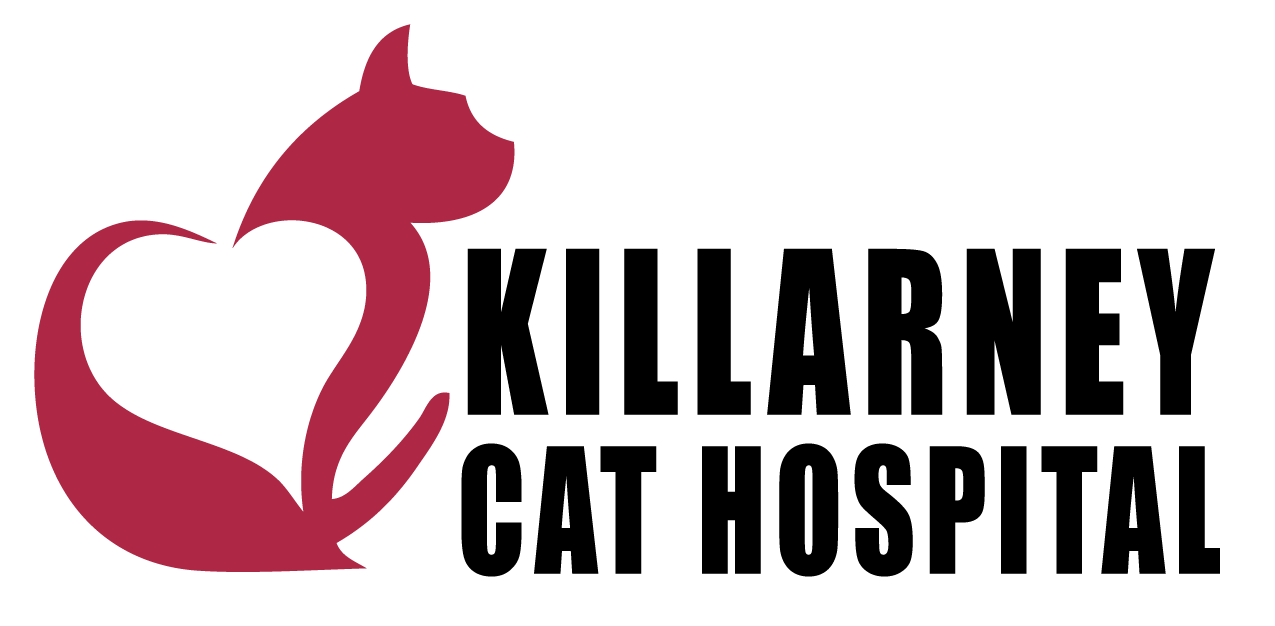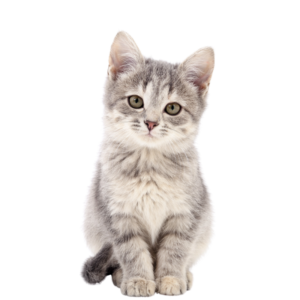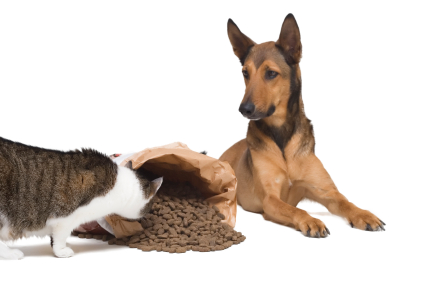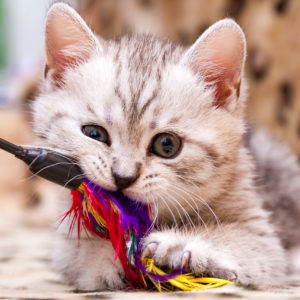I recently had a conversation with a friend of mine who wanted to know why the cat food we offer at Killarney Cat Hospital is considered better than other brands that are available. The take home message I had for her was that just like the medications and other products we have to offer, we recommend this food because it really is the best! It has been developed, tested, produced, re-tested, and perfected with Veterinarians at the helm. Most of the staff can attest to the many health benefits seen in their own pets once converting onto a Veterinarian recommended diet.
Now, these companies have been producing medical diets for years as a form of treatment for certain health concerns in your pet, and some of you have maybe even used them for your pet. But not many people realize that these same companies also have premium foods for all life stages of your pet.
Kittens: Those rambunctious rascals are full of energy and are growing like weeds every day. As such, their energy requirement is a lot higher than an adult cat. They need extra calcium and phosphorous to help with bone development. These diets are rich in omega fatty acids, prebiotics, fibre, antioxidants, and vitamins leading to great digestion and beautiful coats.
When to feed: from weaning to about 6-10 months of age. Offering kitten food for too long will result in early obesity
Adults: These diets focus on a happy gut, nice hair coat, optimal urinary health, weight management and immunity. This stage fills the bulk of your cats life and these diets need to be tasty and nutritious.
When to feed: Around 8-10 months old, cats start to enter the ‘teenage’ years. They are lanky and less active. They are not truly an adult until they reach 2-3 yrs old. Around time of neuter / spay, start to transition from kitten food onto the adult formula. Regular visits with your veterinarian, environmental enrichment and measured feedings should help to keep your cat’s weight in the optimal range.
Senior / Geriatric / Mature: As cats move into their golden years, they become less active. We see arthritis, dry hair coats, poor nutrient uptake, muscle loss, and cognitive decline. They may become picky eaters because their sense of smell deteriorates. These diets contain supplements which address all these aging concerns.
When to feed: Cats who are older than 7 years are considered “mature”, the “senior” cats are 11-14yrs and “Geriatric” is over 15yrs. At this stage, your veterinarian will help you decide which diet is optimal for your pet based on overall health and body condition. Many of these diets contain lower protein levels to combat decline in kidney function which is not ideal for an already muscle wasted cat.
Dental Diet: This particular food targets optimal oral health. And just like a dentist who gets excited when they look into the mouth of someone who flosses regularly and uses an electric toothbrush, I feel that same validation each time I examine the mouth of a cat who has been on a dental diet. Most cats require a dental cleaning by the time they reach 3-5 years of age. Cats eating a dental diet as their only source of food on the other hand may not need a dental until they are much, much older.
When to feed: Any adult cat who is not overweight.
After telling my friend all of this, she still wanted to know why the food was so expensive?? I was quick to point out that when you are living off a diet of optimal ingredients, you eat less, and ultimately the bag of food lasts longer and costs less when you break it down to the ‘cost-per-day’ basis. Not to mention there are less health concerns which require expensive treatments.
So next time you stop in to Killarney Cat Hospital, just ask us what food we feed our own pets! I bet the team will have great stories to tell you about how healthy their pets are on a high quality diet.





